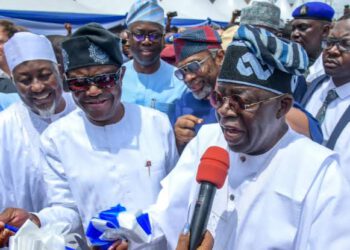In response to the widespread dissemination of two fiscal policy documents, the Presidency has clarified that these documents are not officially approved and should be disregarded by the public and media. Bayo Onanuga, Special Adviser to the President on Information and Strategy, issued a statement addressing the confusion surrounding the documents.
One of the documents, titled “Inflation Reduction and Price Stability (Fiscal Policy Measure etc) Order 2024,” is being circulated as if it were an executive order signed by President Bola Ahmed Tinubu. The other, a 65-page draft titled “Accelerated Stabilisation and Advancement Plan (ASAP),” contains suggestions for improving the Nigerian economy and was recently received by President Tinubu.
“We urge the public and the media to disregard the two documents and cease further discussions on them,” Onanuga stated. “None is an approved official document of the Federal Government of Nigeria. They are all policy proposals that are still subject to reviews at the highest level of government. Indeed, one has ‘draft’ clearly written on it.”
Coordinating Minister of the Economy, Wale Edun, emphasized the iterative nature of policymaking, noting, “It is important to understand that policymaking is an iterative process involving multiple drafts and discussions before any document is finalised. We assure the public that the official position on the documents will be made available after comprehensive reviews and approvals are completed.”
The dissemination of these documents has led to speculation about the government’s stance on various economic matters, including customs tariffs and fuel subsidies. Edun reiterated that the government’s position on fuel subsidies remains unchanged from President Tinubu’s declaration on May 29, 2023, which announced the end of the fuel subsidy regime. He denied reports suggesting a N5.4 trillion provision for fuel subsidies in 2024.
“As previously stated by government officials, including myself, President Tinubu announced the end of the fuel subsidy program last year, and this policy remains firmly in place,” Edun clarified. “The Federal Government is committed to mitigating the effects of this removal and easing the cost of living pressures on Nigerians. Our strategy focuses on addressing key factors such as food inflation, which is significantly impacted by transport costs. With the implementation of our CNG initiative, which aims to displace high PMS and AGO costs, we expect to further reduce these costs.”
Edun affirmed the government’s commitment to ending unproductive subsidies and supporting vulnerable populations, stressing that the administration’s dedication to these goals is unwavering.
Onanuga concluded by urging the media to verify documents through official channels to ensure accurate and reliable information is conveyed to the public. “We call on the media to always exercise necessary checks and restraints in the use of documents that do not emanate from official channels so that the members of the public are properly informed, guided, and educated on government policies and programs,” he said.
This statement from the Presidency aims to curb misinformation and maintain clarity regarding the government’s economic policies and directives.





















